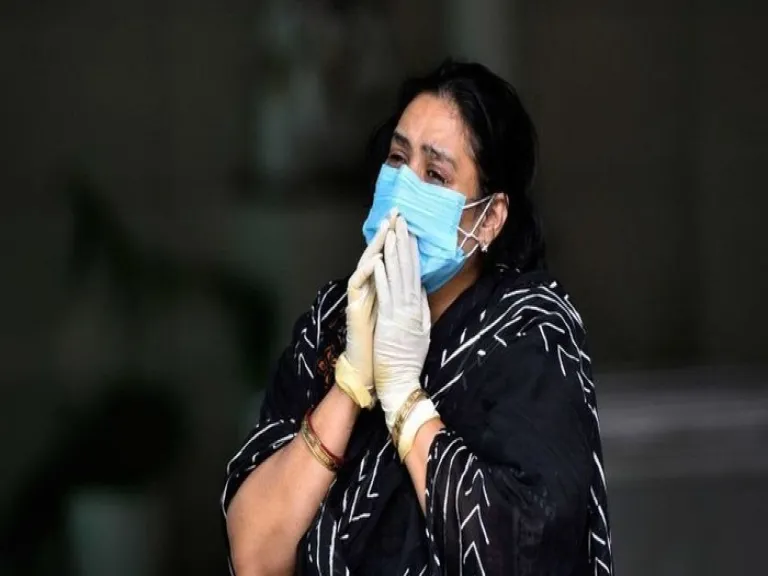
A senior official from India's federal government told reporters that there was no shortage of oxygen in Delhi or anywhere else in the country on Monday (03/05).
As he spoke, several small hospitals - just a few kilometers from where he stood - sent messages that they were running out of oxygen, putting patients' lives at risk.
The head doctor of one of the hospitals - a pediatrician - told the BBC he was "very worried" because of the risk of death in children.
Later they got their oxygen supply just right, after a local politician stepped in.
Also read:
https://listenbeforeyousing2021tw.journoportfolio.com/
https://meitanteiconanhiironofuzaishomei2021.journoportfolio.com/
https://boropo2245.journoportfolio.com/
https://xolesif699.journoportfolio.com/
https://xolesif699.journoportfolio.com/articles/zh-cui-hun-pin-lu-wan-zheng-ban-the-hypnosis-2021kan-mian-fei-dian-ying/
New Covid variants from India, Africa and the UK enter Indonesia, what are the dangers?
'The new Covid-19 variant from India' has entered Indonesia, why are infectious disease experts 'worried'?
Tanah Abang was invaded by buyers, 'a terrible Covid-19 transmission could occur' in Indonesia
However, the federal government has repeatedly insisted that there is no shortage of supply.
"We are just having trouble transporting it," said Piyush Goyal, a senior official from India's Interior Ministry.
It should be a hospital that "makes sure to use oxygen wisely according to guidelines", Goyal continued, confusing doctors.
But experts say the oxygen shortage is just one problem showing that the Indian government is negligent and is failing to do enough to stop or minimize second wave damage.
A patient getting oxygen at a charitable organization
SOURCE OF IMAGES, GETTY IMAGES
The warning has actually been issued many times, including:
In November, the parliament's standing committee for health said oxygen supplies were inadequate and government hospital beds were "grossly inadequate".
In February, several experts told the BBC they were worried about an impending 'Covid tsunami'.
In early March, a group of expert scientists, formed by the government, warned officials about a more contagious variant of the coronavirus spreading in the country - but no significant containment measures had to be taken, one of the team's scientists told the BBC. The Indian government has yet to respond to these allegations.
Nonetheless, on March 8, the country's health minister announced that India was in the "final stages of a pandemic".
So, what went wrong so that it can be a lesson for other countries, including Indonesia?
The beginning
In January and February, India's daily cases fell to below 20,000. This number is far lower than the peak of daily cases which reached around 90,000 in September 2020.
Prime Minister Narendra Modi declared Covid lost, and all public meeting places were opened.
And soon, people were not following Covid's health protocols, thanks in part to confusing messages from the government.
When Modi asked people to wear masks and follow social distancing in his public messages, he addressed the unmasked crowd during his election campaign in five states.
A number of his ministers were also seen giving speeches at large public gatherings without wearing masks.
Kumbh Mela, a Hindu festival that attracts millions of people, was also given the green light to hold.
Also read:
Answering questions from BBC readers about the second wave and the handling of the pandemic in India
Covid-19 is 'raging' in India: Indonesian citizens talk about upper-caste citizens who 'feel they can violate health protocols'
Hosted by mass religious rituals and political marches, India is hit by the 'Covid tsunami' - 230,000 cases a day
A woman receives oxygen via a mask
SOURCE OF IMAGES, GETTY IMAGES
"There is a complete disconnect between what they practice and what they preach," said public policy and health systems expert Dr Chandrakant Lahariya.
Prominent virologist, Dr Shahid Jameel, said "the government did not anticipate a second wave coming and started celebrating it too early".
Also read:
Stories of nurses in India struggling to save Covid patients 'until their last breath'
Asked for oxygen cylinders via Twitter for his dying grandfather, who was even threatened with prison by the police
Why should the world worry about the Covid-19 crisis in India?
The impact of the spike in cases has also exposed underfunding and neglect of India's public health care system.
The heartbreaking sight outside the hospital - people dying without treatment - highlights the grim reality of India's healthcare infrastructure.
As one expert put it, "India's public health infrastructure is always in disrepair, the rich and middle class are just getting to know it".
Those who can afford always depend on private hospitals for treatment, while the poor find it difficult just to get a doctor's appointment.
Current schemes, such as health insurance

- Valentine’s day is all about expressing your affection to your partner or someone you love through greetings and gifts.

- Being in good standing means that the company is still active and has not been dissolved for non-filing of federal and/or provincial tax returns

- Cyber security is a means to protect the automated and interconnected system You are able to not keep in mind the a substantial number of algebra strategies and

- DumpsPanda offers easy to use preparation formats which make our Oracle 1Z0-1072-20 Dumps effective and worthy. our preparation formats of the study material